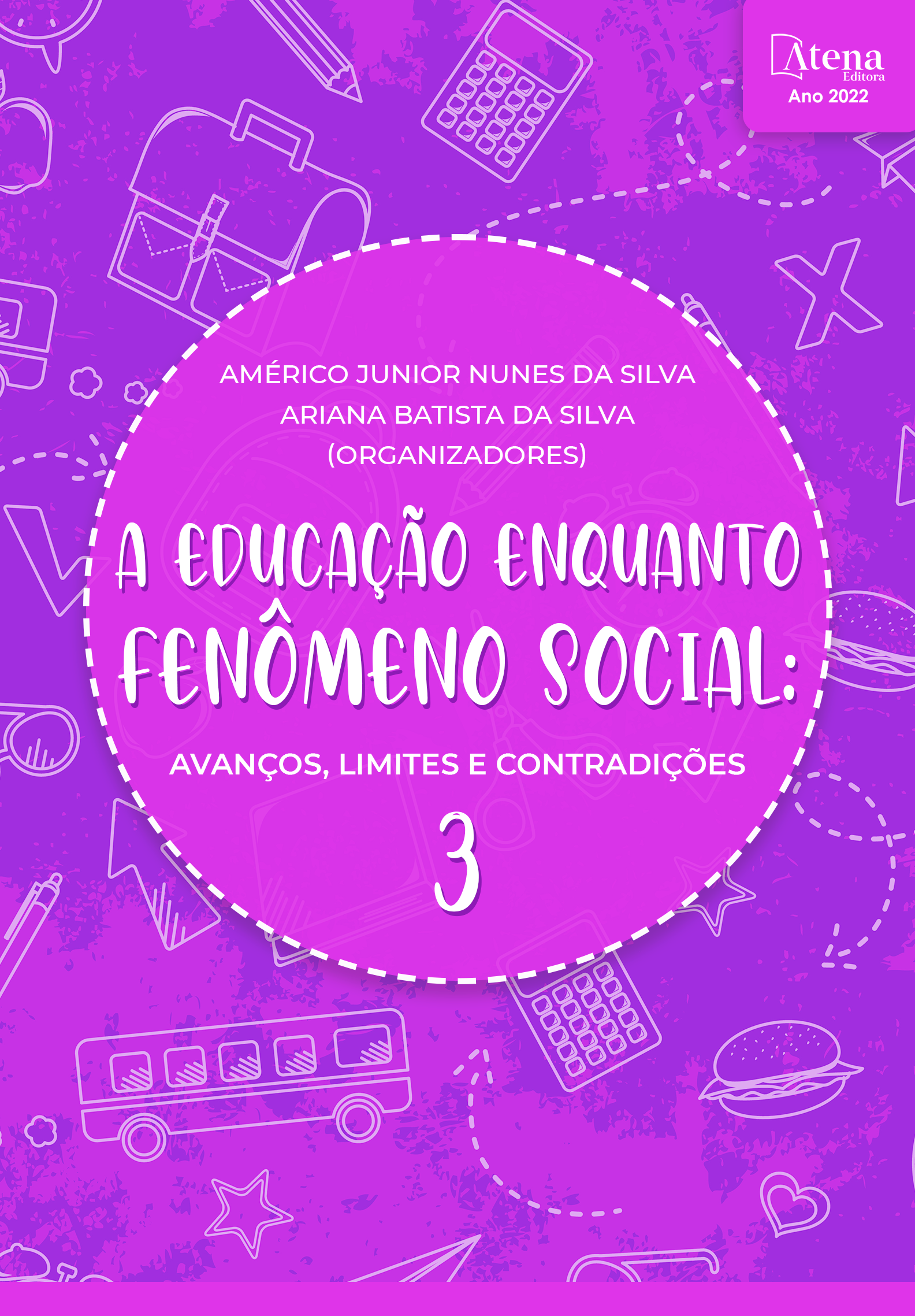
ISOLAMENTO SOCIAL, ENSINO À DISTÂNCIA E SEUS IMPACTOS NO ESTUDANTE UNIVERSITÁRIO DURANTE A PANDEMIA DE COVID-19
Introdução: No atual cenário mundial contemporâneo, encontramo-nos meio a uma pandemia provocada pelo coronavírus (Sarscov-2) qual provocou alterações repentinas e de grande impacto na população mundial, não somente no âmbito social, como também, no âmbito laboral, estudantil e em relação às convivências interpessoais. Com isso, a fim de tentar reduzir a ampla disseminação da contaminação do vírus, foi convocado um isolamento populacional, visando um bem maior: a proteção das pessoas. Em contrapartida, sabe-se que o isolamento traz alguns resultados negativos para a população como ansiedade, inseguranças e pânico, uma vez que, segundo Aristóteles, o ser humano é um ser social, não feito para viver só. Objetivo: Tendo em vista a atual situação pandêmica, o presente estudo objetivou avaliar a situação psicológica e social dos universitários, bem como os impactos que o isolamento social e o uso da metodologia EAD (ensino à distância) causaram no cotidiano e no estado emocional desses estudantes do Brasil, principalmente naqueles que cursam graduação na área da saúde no primeiro semestre de 2020. Método: Foi aplicado através de meio digital (plataforma "Google Forms") um questionário contendo 28 questões que mantém o caráter abrangente da pesquisa original, abordando principalmente as questões de cunho social, emocional e psicológico desses estudantes. O questionário, foi disponibilizado aos alunos a partir de redes sociais, acompanhados de termo de consentimento livre e esclarecido. O formulário ficou disponível durante quatro meses (Março a Julho). Resultados: 563 formulários foram preenchidos por estudantes de todo o Brasil, sendo 85,6% destes da região Sudeste, observou-se ainda uma maior participação de mulheres e de autodeclarados brancos, com média de idade entre 18 a 20 anos. Dentre os estudantes da área da saúde, 77,04% eram do curso de medicina, enquanto fora da área da saúde observou-se uma grande adesão dos estudantes de direito e engenharia. Foi relatado que 91,11% dos participantes estavam com aulas no método de ensino a distancia (EAD) e 79% se sentiram prejudicados de alguma forma com relação a nova rotina de estudo. Quando relatado alteração no aspecto emocional, as queixas mais comuns foram relacionadas a ansiedade, medo, raiva, angústia e tristeza. Conclusão:A prevalência de sintomas depreciativos foi maior observada em estudantes dos cursos da área da saúde, sendo superiores aos de outras áreas. Observou-se que a escola médica e suas exigências são fatores precipitantes para o surgimento dos sintomas depressivos relatados pelos voluntários. Não foi encontrada relação entre renda, sexo ou semestre perante esses resultados, no entanto, a adesão ao isolamento social foi correlacionada aos sintomas
de tom negativo.
ISOLAMENTO SOCIAL, ENSINO À DISTÂNCIA E SEUS IMPACTOS NO ESTUDANTE UNIVERSITÁRIO DURANTE A PANDEMIA DE COVID-19
-
DOI: 10.22533/at.ed.5992226046
-
Palavras-chave: Estudantes Universitários; Isolamento social; Depressão
-
Keywords: Estudantes Universitários; Isolamento social; Depressão
-
Abstract:
Introduction: In the current contemporary world scenario, we find ourselves in the midst of a pandemic caused by the coronavirus (Sarscov-2) which caused sudden changes and of great impact on the world population, not only in the social sphere, but also in the work, student and in relation to interpersonal relationships. With this, in order to try to reduce the wide spread of the virus contamination, a population isolation was called, aiming at a greater good: the protection of people. On the other hand, it is known that isolation brings some negative results for the population such as anxiety, insecurities and panic, since, according to Aristoteles the human being is a social being, not made to live alone. Objective: In view of the current pandemic situation, the present study aimed to evaluate the psychological and social situation of university students, as well as the impacts that social isolation and the use of the EAD methodology (distance learning) caused in the daily life and emotional state of these students. students from Brazil, especially those who are studying undergraduate courses in the health area in the first semester of 2020. Method: A questionnaire containing 28 questions was applied through digital media ("Google Forms" platform), which maintains the comprehensive character of the original research, mainly addressing the social, emotional and psychological issues of these students. The questionnaire was made available to students through social networks, accompanied by an informed consent form. The form was available for four months (March to July). Results: 563 forms were filled out by students from all over Brazil, 85.6% of which were from the Southeast region, there was still a greater participation of women and self-declared whites, with an average age between 18 and 20 years. Among the students in the health area, 77.04% were in the medical course, while outside the health area there was a great adhesion of law and engineering students. It was reported that 91.11% of the participants had classes using the distance learning method (EAD) and 79% felt harmed in some way in relation to the new study routine. When reported changes in the emotional aspect, the most common complaints were related to anxiety, fear, anger, anguish and sadness. Conclusion: The prevalence of derogatory symptoms was higher in students from courses in the health area, being higher than those from other areas. It was observed that the medical school and its requirements are precipitating factors for the emergence of depressive symptoms reported by the volunteers. No relationship was found between income, sex or semester in view of these results, however, adherence to social isolation was correlated with symptoms
of negative tone.
-
Número de páginas: 3
- Adriana Fogagnolo Mauricio
- Bruna Barretto


